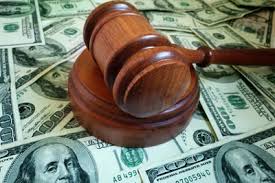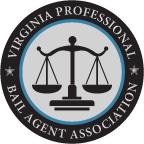If you have additional questions not answered on this site or, if you want to obtain a bail bond, please feel free to call Northern Virginia (703) 798-8510 or Hampton Roads (757) 745-9451 or email us anytime. A qualified bail agent will be happy to answer all of your questions and assist with all of your bail bond needs.
Category Archives: Bail Bond FAQs
Who is liable for the bail bond?
The indemnitor (co-signer) is financially liable for the bail bond. The indemnitor’s liability is limited to the full face value of the bail bond.
Is the bail bond premium refundable?
Once the bail bond is posted and accepted by a court or jail, liability is taken on the bail bond. At that point the bail bond premium is fully earned and is not refundable.
How long is a bail bond good for?
A bail bond is good for one year. If the case goes beyond the one year, the premium may have to be paid again in order to keep the bail bond current. Check with your bail bonds company.
How much does a bail bond cost?
Most bail bond premiums are ten percent (10%) of the full bail amount. For example, if the full bail amount is $5,000.00 the premium (fee) for the bail bond is $500.00. These range of fees (from 10% minimum to 15% maximum) are established by the State of Virginia.
What if I am calling from out of the area or another state?
If you are out of the area or live in another state and you have a friend or family member in custody, it is still possible to obtain a bail bond. The bail bond contract can be faxed or emailed to you and payment can be received by credit card or wire transfer. Call us at Northern Virginia (703) 798-8510 or Hampton Roads (757) 745-9451 to discuss your individual situation.
What hours do bail agencies operate?
Because people are arrested both day and night, most bond agencies are open 24 hours a day, 7 days a week, 365 days a year.
Where can a bail bond be posted?
A bail bond can be posted at most courts or magistrate offices at the jails. Most jails accept bail bonds 24 hours a day, 7 days a week, 365 of the year.
What is Collateral?
Collateral is a form of personal property placed within the fiduciary control of the bondsman, which may be sold in the event the defendant does not appear for his/her scheduled court proceedings. The bondsman can then sell the property to cover the amount of bail posted on behalf of the defendant. Collateral is a way of insuring the defendant will appear in court and complete his/her obligation to the court.
Where can I get a bail bond?
Call us at one of our two locations: Northern Virginia (703) 798-8510 or Hampton Roads (757) 745-9451. A licensed bail agent will confidentially discuss your individual situation and assist with all of your bail bond needs.
What is a bail bond?
A bail bond (surety bond) is a financial guarantee to the court that the defendant will appear in each and every court appearance as the court directs – until the case is ‘finalized.’ Failure of the defendant to comply with the conditions of the court could result in warrants issued and bail bonds forfeited.
What are the types of criminal bonds and why do they matter?
There are a few basic release options. These options are:
Released on Your Own Recognizance
Out of pocket cost: $0!
This type of bond is for individuals that judges deem to be a very low danger to the public and a very low flight risk. In these cases, there is no payment made in the form of a bail bond, the defendant is released and signs an agreement that s/he will show up in court and will refrain from engaging in illegal activity.
If the defendant fails to show up for court, then a financial penalty is assessed – then the defendant must pay the bond.
Surety Bonds
Out of pocket cost in VA is set by law: 10-15%

Sometimes bail can be exorbitant! But our bail bondman will try to find a way to make it work for you.
These types of bail bonds are the kind you hear about the most. They are used when the judge sets a specific amount of money that must be paid to bail someone out of jail and the defendant does not have enough cash to cover the cost. A third party, such as Kwik and EZ Bail Bonds, can pay for the bail and assume responsibility for the defendant showing up in court. If the defendant shows up for court, the bail amount is returned to the bail bondsman; if not, the bail bondsman loses the money.
The bail bondsman will assess the risk that a person will or will not show up for court and may, if the risk is out of normal range, require that the defendant or a friend or family member put up some additional collateral.
Cash Bail
Out of pocket cost: the whole amount of the bond!
Sometimes, the judge will set a specific amount that must be paid in order to bail the defendant out of jail, known as cash bail bonds.
This is often used in cases where the judge is not sure whether the defendant will show up for court, or when s/he has unpaid fines or fees from other cases. If the defendant, or the defendant’s friends or family, have this amount of money available, they can pay the bond. As long as the defendant shows up for his/her court date, the cash will be returned to the person who paid the bond less whatever fines or amounts are due.
Federal Bonds
In federal cases handled outside of the local or state jurisdiction, federal bonds may be issued. While there is no collateral required, two individuals must prove they have the means to pay the bail in case the defendant fails to show up for court, and sign an agreement that they will pay if that happens.
Property Bonds
If you do not have cash on hand and prefer not to work with a third party, you can also put up property as collateral. In these cases, the property must be valued at least twice the cost of bail.
Immigration Bonds
These are reserved for illegal immigrants who get arrested, and are generally more expensive than traditional bonds. They must be arranged through federal offices, they are not used in state or local courts, and bail bondsman must obtain special certification in order to administer immigration bonds.
Jail is not a place where you want to spend a lot of time—by knowing about different types of bonds and the cases in which each one applies, you are better prepared in the event you find yourself locked up and need help getting out.
How and when are bail bonds set?
 When an individual is arrested, typically that person will be taken to a local law enforcement agency. Once processed and booked into jail, the inmate will be taken before the magistrate and may be given bond at that time. The whole process can take anywhere from an hour to several hours or more.
When an individual is arrested, typically that person will be taken to a local law enforcement agency. Once processed and booked into jail, the inmate will be taken before the magistrate and may be given bond at that time. The whole process can take anywhere from an hour to several hours or more.
In some cases the inmate will need to go before a judge for bail to be set. If bond is to be set by a judge, that usually takes place the following business day.








